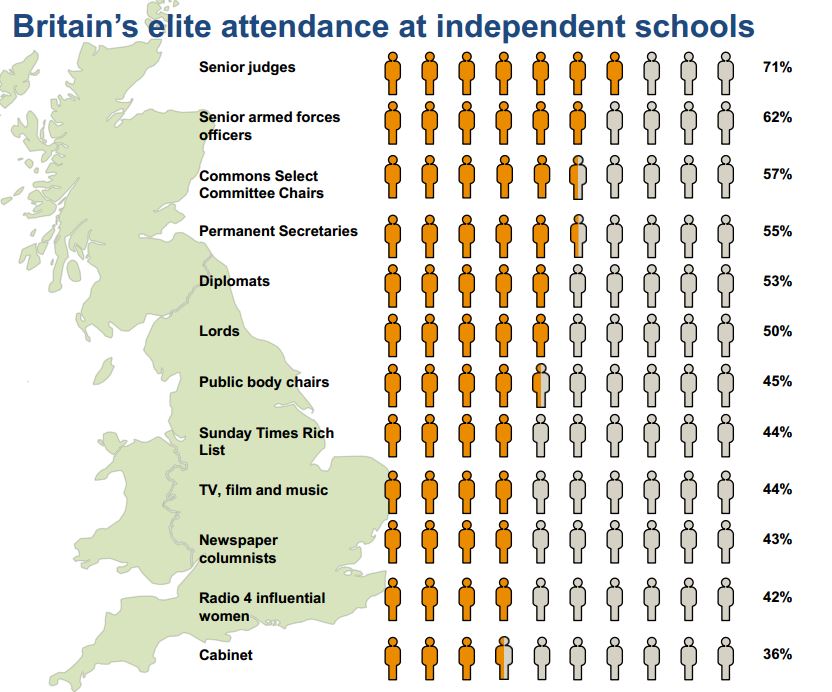Highlights from the report of the Social Mobility and Child Poverty Commission – a rare study of the rich and influential.
Research conducted by the Commission found that 65% of people believe ‘who you know’ is more important than ‘what you know”.
Alan Milburn’s Foreword
This report from the Commission on Social Mobility and Child Poverty Commission examines who is in charge of our country. It does so on the basis of new research which has analysed the background of 4,000 leaders in politics, business, the media and other aspects of public life in the UK. This research highlights a dramatic over-representation of those educated at independent schools and Oxbridge across the institutions that have such a profound influence on what happens in our country. It suggests that Britain is deeply elitist.
That matters for a number of reasons. In a democratic society, institutions – from the law to the media – derive their authority in part from how inclusive and grounded they are. Locking out a diversity of talents and experiences makes Britain’s leading institutions less informed, less representative and, ultimately, less credible than they should be. Where institutions rely on too narrow a range of people from too narrow a range of backgrounds with too narrow a range of experiences they risk behaving in ways and focussing on issues that are of salience only to a minority but not the majority in society. Our research shows it is entirely possible for politicians to rely on advisors to advise, civil servants to devise policy solutions and journalists to report on their actions having all studied the same courses at the same universities, having read the same books, heard the same lectures and even being taught by the same tutors.
This risks narrowing the conduct of public life to a small few, who are very familiar with each other but far less familiar with the day-to-day challenges facing ordinary people in the country. That is not a recipe for a healthy democratic society. To confront the challenges and seize the opportunities that
Britain faces, a broader range of experiences and talents need to be harnessed. Few people believe that the sum total of talent in Britain resides in just seven per cent of pupils in our country’s schools and less than two per cent of students in our universities. The risk, however, is that the more a few
dominate our country’s leading institutions the less likely it is that the many believe they can make a valuable contribution. A closed shop at the top can all too easily give rise to a “not for the likes of me” syndrome in the rest of society. Overcoming declining levels of public engagement and trust in
our country’s institutions relies on them opening their doors to a broader range of talent.
We in the Commission hope this report prompts a re-think in the institutions that have such a critical role to play in making Britain a country where success relies on aptitude and ability more than background or birth.


